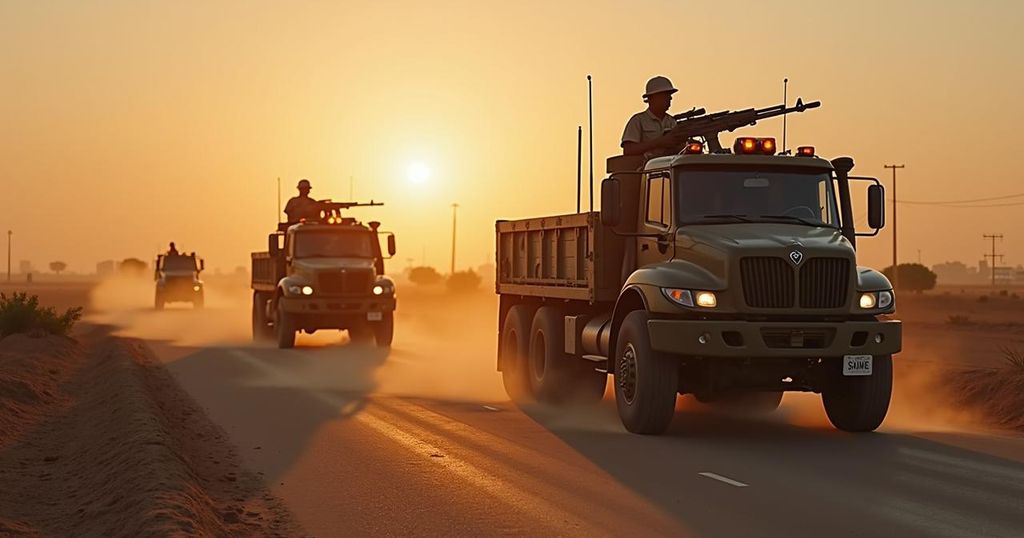Sudan’s civil war is exacerbated by secret arms shipments from the UAE and Iran, supporting both the Rapid Support Forces and the Sudanese military. Reports indicate that the UAE has conducted numerous flights believed to be supplying weapons to the RSF, despite denials from both the RSF and UAE officials. The Sudanese military is also reportedly using Iranian-supplied drones, heightening regional concerns over stability. Since the conflict’s initiation in April 2023, there has been a substantial humanitarian impact, with fears of wider regional destabilization.
In the ongoing civil conflict in Sudan, both sides are reportedly being bolstered by clandestine arms shipments from foreign nations, particularly the United Arab Emirates (UAE) and Iran. Confidential assessments funded by the U.S. State Department and evidence derived from seized weaponry suggest that these foreign contributions have substantially exacerbated the conflict. According to a report from the Sudan Conflict Observatory, which monitored and analyzed Emirati flights from June 2023 to May 2024, they have identified 32 instances of these flights, suggesting military transfers to the Rapid Support Forces (RSF). Although the RSF and UAE officials have denied such support, evidence collected indicates otherwise. Additionally, the Sudanese military has been reported to utilize armed drones supplied by Iran. From December to July, the Observatory tracked a number of flights believed to be military in nature, which involved clandestine transfers of drone technology from Iran. Despite denials from Sudanese military officials, a security source acknowledged the receipt of drones from Iran. While previous reports have highlighted foreign arms shipments, the frequency and specifics of these flights have not been extensively detailed before this assessment. The civil war in Sudan, which began in April 2023, was a result of rising tensions between the Sudanese military and the RSF. The conflict has prompted a dire humanitarian crisis, with a significant portion of the population displaced. Observers fear that the ongoing strife may draw in neighboring nations and further destabilize the already volatile region. The strategic importance of Sudan, particularly its location along the Red Sea, has drawn the attention of various regional powers, which are reportedly supporting local factions in pursuit of their national interests. Both the UAE and Iran are believed to have vested interests in Sudan’s resources and regional stability. Concerns have also been raised regarding the potential emergence of a failed state in Sudan, which could pose broader risks to the surrounding region. As international relations play a pivotal role in the conflict, U.S. officials have emphasized the necessity for regional stakeholders to recognize the ramifications of allowing Sudan to fall into total disarray.
Sudan has been embroiled in a devastating civil war since April 2023, escalating from a power struggle between the military and the Rapid Support Forces (RSF), both previously power-sharing agreements. The warring factions are reported to receive arms supplies from foreign nations, including the UAE and Iran, further complicating the conflict. The Sudan Conflict Observatory has conducted analyses that highlight a pattern of arms transfers coinciding with covert military support from these countries. The civil war has resulted in significant humanitarian crises within Sudan, with mounting concerns over the country’s strategic geographic position, particularly concerning the Red Sea, leading to broader regional implications.
The revelations regarding foreign arms shipments to Sudan’s warring factions underline the complex dynamics of the ongoing civil war, exacerbated by external involvement from countries such as the UAE and Iran. The situation poses grave threats to Sudan’s stability and, by extension, to the region’s peace and security. As the conflict continues, it is crucial for the international community to engage in efforts to deescalate tensions and support ceasefire initiatives.
Original Source: www.washingtonpost.com






